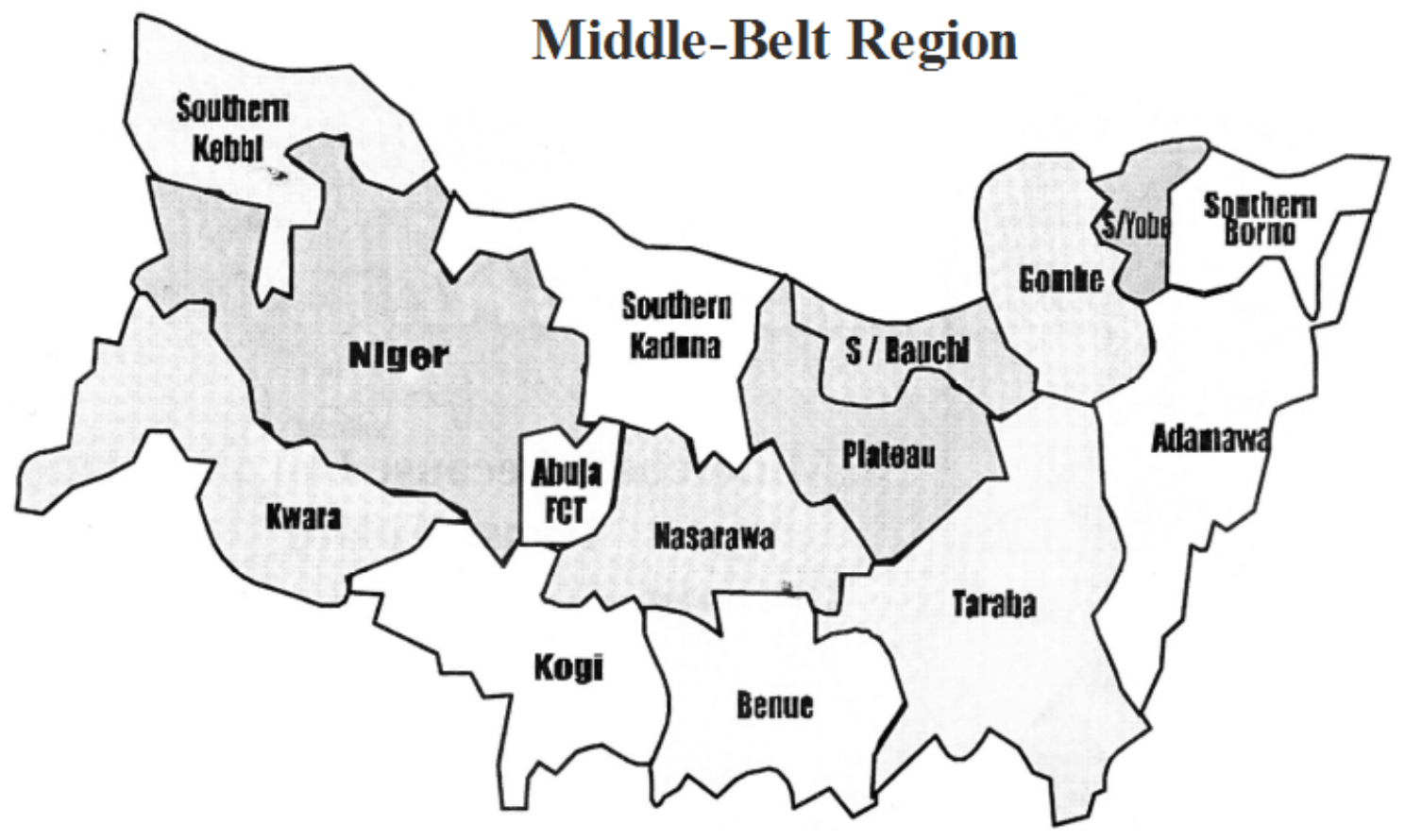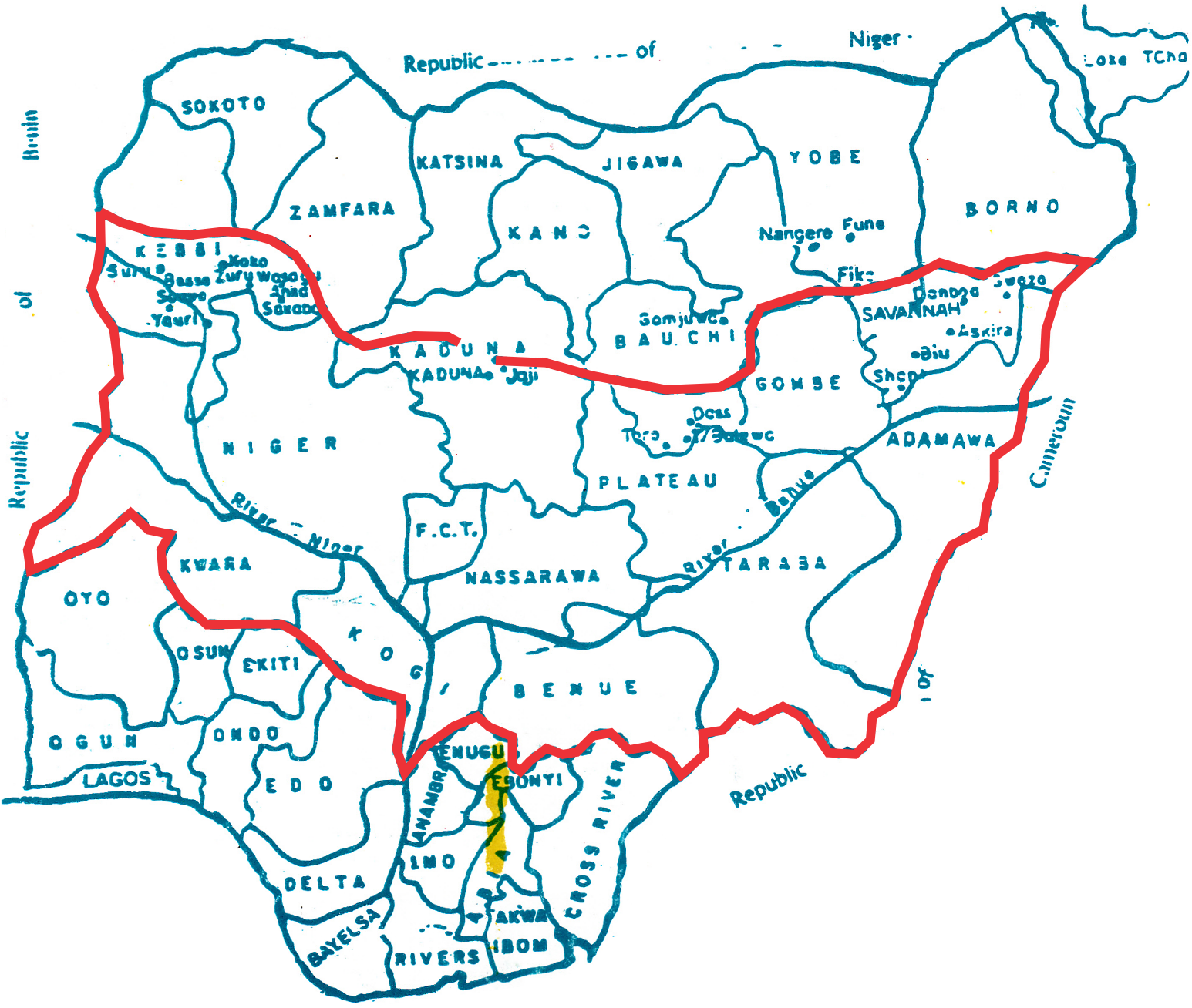The Middle-Belt Region is the host and home to Rivers Niger and Benue in Nigeria. It is interspersed by upland and broad valleys and plateau and covered by high grass – law savannah and acacia – tall grass savannah and, acacia – desert grass savannah. It is almost of the same latitude between the North and South of Nigeria. It stretches from the Western to the Eastern longitude of Nigeria.
As a Belt, it holds and rounds the waist of Nigeria from the East to the West; it is Central Nigeria. It situates in the middle of Nigeria; it is the Midland-Belt and, therefore, is known and called the Middle-Belt Region of Nigeria and not North Central. The actual and real Middle-Belt people are the Aborigines of Central Nigeria, made up of the old Kwararrafa Empire, and her allies of the North-east. The Middle-Belt Region consists of many ethnic nationalities. It is a zone of shared culture, e.g., the Nok culture.
The people of the Middle-Belt are never conquered by any invading racial or religious force and, therefore, consist of autonomous Kingdoms and Chiefdoms. It was the mal-administration of the British colonial administration, which ceded parts of the Middle-Belt to the Fulani Caliphate with whom they had a secret pact and subjected them to the emirate system – in spite of the fact that they had earlier abolished slavery.

Unlike the Islamic Hausa/Fulani and Kanuri emirates of North/Sahara region, who subsumed by or bigotted to Arabian culture, the Middle-Belt Region is peopled mainly by Animist, Christians and Moslems – thus, being the most religious tolerant and cultural compliant region of Nigeria. (See Willinks Commission Minorities Map 6, 1958).
Few from the longitude and latitude perspective of height, width, dept and distance, etc., the physical, cultural and geographical features of the Middle-Belt gives any inquirer the right impression of the region’s relative position with distinction. To the extreme West, the Middle-Belt ethnic tribes of Barba in Kwara State and Borgu in Niger State share borders with Benin Republic, while to the East, the ethnic tribes of Burra in Borno and Yobe share borders with Cameroon Republic. When the Region is projected as beginning from Nigeria’s border with Republic of Cameroon to the East, it is meant to give the Region the prominence it deserves as the connecting and sustaining belt of Nigeria’s unity and territorial integrity.
Since the Middle-Belt Region consists of ethnic nationalities, it has little or no fear of domination by a majority tribe; and this is because no one group is large enough to be dominant over others. More so, the people of the Region went through missionary schools of both Christian and Islamic faiths, educational institutions, and are almost equally spread; they can also be said to be evenly educated.
The major religions, Christianity, Islam and Animist, are entrenched in the Region. Quite often, siblings belong to different religious faiths and, yet, remain united in love by biological links and socio-cultural interactions. Religious dominance is a very remote possibility because there are no illiterate religionists.
All we need is the ability of the ethnic groups to manage their Region equitably and harmoniously, to avoid rivalry, envy, fear, ill-will, hatred and domination factors, which have always generated in the hearts of the ethnic groups against one another.
In the Middle-Belt Region, we have been experiencing wanton killings of our people, destruction of villages and occupation of lands by the Fulani herdsmen and terrorists, and leading their cattle to destroy farmlands and killing of farmers and their families. As citizens of this country, we are entitled to be protected by the State. Unprovoked attacks of this nature in a barbaric and dehumanising manner, a citizen is entitled to self-defence.
All Middle-Belt people, male and female, should stretch forth hands of fellowship to other groups from across the length and breadth of Nigeria, whose aims and objectives are similar to ours, in a joint resolve to achieve a structural balanced peaceful and progressive Nigeria.



